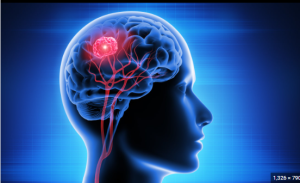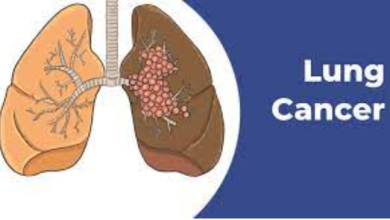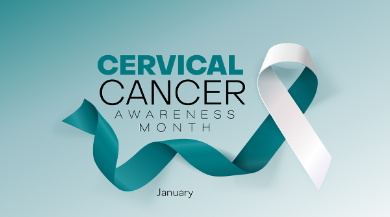Brain Tumor Navigating the Complex Landscape of Diagnosis and Treatment

Outline
I. Introduction
A. Definition of Brain Tumor B. Prevalence and Impact
II. Types of Brain Tumors
A. Primary Brain Tumors B. Metastatic Brain Tumors
III. Causes and Risk Factors
A. Genetic Factors B. Environmental Factors
IV. Signs and Symptoms
A. General Symptoms B. Specific Symptoms
V. Diagnosis
A. Imaging Techniques B. Biopsy and Pathology
VI. Treatment Options
A. Surgery B. Radiation Therapy C. Chemotherapy D. Targeted Therapies

VII. Prognosis
A. Factors Influencing Prognosis B. Survival Rates
VIII. Coping with Brain Tumor Diagnosis
A. Emotional Support B. Lifestyle Changes
IX. Prevention
A. Lifestyle Modifications B. Regular Health Check-ups
X. Advancements in Brain Tumor Research
A. Current Research B. Future Perspectives
XI. Personal Stories
A. Survivor Stories B. Caregiver Experiences
XII. Awareness and Advocacy
A. Importance of Awareness B. Advocacy Organizations
XIII. Conclusion
A. Recap of Key Points B. Encouragement and Hope
XIV. FAQs
A. What are the early signs of a brain tumor? B. How is a brain tumor diagnosed? C. Are all brain tumors cancerous? D. Can lifestyle changes help prevent brain tumors? E. What support is available for brain tumor patients?
Brain Tumor: Navigating the Complex Landscape of Diagnosis and Treatment
Introduction
Brain tumors are a complex and often misunderstood medical condition that affects a significant number of individuals worldwide. In this article, we will delve into the intricacies of brain tumors, exploring their types, causes, symptoms, diagnosis, and the array of treatment options available.
Types of Brain Tumors
Primary Brain Tumors
Primary brain tumors originate within the brain tissue itself. These can be benign or malignant and are classified based on their location and the type of cells involved.
Metastatic Brain Tumors
Metastatic brain tumors, on the other hand, are tumors that have spread to the brain from other parts of the body. Understanding the distinctions between these types is crucial for accurate diagnosis and treatment.
Causes and Risk Factors
Genetic Factors
While some brain tumors may have a genetic predisposition, most cases are sporadic. Understanding the genetic factors involved can provide valuable insights for targeted treatments.
Environmental Factors
Exposure to certain environmental factors, such as radiation or certain chemicals, may contribute to the development of brain tumors. Identifying and minimizing these risks is essential for prevention.
Signs and Symptoms
General Symptoms
Brain tumors often present with general symptoms such as headaches, nausea, and changes in cognitive function. Recognizing these early signs is crucial for prompt medical attention.
Specific Symptoms
Different types of brain tumors may manifest with specific symptoms related to their location. Understanding these symptoms aids in early diagnosis and targeted treatment.
Diagnosis
Imaging Techniques
Advanced imaging techniques, including MRI and CT scans, play a pivotal role in diagnosing brain tumors. These technologies enable precise localization and characterization of the tumor.
Biopsy and Pathology
A definitive diagnosis often involves a biopsy, where a small sample of the tumor is extracted for detailed examination. Pathological analysis helps determine the tumor’s nature and informs treatment decisions.
Treatment Options
Surgery
Surgical intervention is a common approach for removing brain tumors. The extent of surgery depends on factors like the tumor’s size, location, and type.
Radiation Therapy
Radiation therapy utilizes high-energy beams to target and destroy cancer cells. It is a crucial component of treatment for many types of brain tumors.
Chemotherapy
Chemotherapy involves the use of drugs to kill or inhibit the growth of cancer cells. While it may have side effects, chemotherapy is an integral part of comprehensive brain tumor treatment.
Targeted Therapies
Advancements in medical research have led to targeted therapies that focus on specific molecules involved in tumor growth. These therapies offer a more tailored approach to treatment.
Prognosis
Factors Influencing Prognosis
Several factors, including the tumor’s type, size, and location, influence the prognosis. Understanding these factors helps in setting realistic expectations for patients and their families.
Survival Rates
Survival rates vary based on the type and stage of the brain tumor. Knowing these rates provides a broader perspective on the potential outcomes of treatment.
Coping with Brain Tumor Diagnosis
Emotional Support
A brain tumor diagnosis can be emotionally overwhelming. Seeking support from friends, family, and mental health professionals is crucial for emotional well-being.
Lifestyle Changes
Adopting a healthy lifestyle, including proper nutrition and regular exercise, can complement medical treatment and contribute to overall well-being.
Prevention
Lifestyle Modifications
While not all brain tumors are preventable, certain lifestyle modifications, such as avoiding known risk factors, can help reduce the risk of developing these tumors.
Regular Health Check-ups
Regular health check-ups and screenings play a vital role in early detection and timely intervention. Routine medical examinations contribute to overall health maintenance.
Advancements in Brain Tumor Research
Current Research
Ongoing research endeavors focus on understanding the molecular mechanisms of brain tumors, paving the way for innovative treatments and improved outcomes.
Future Perspectives
The future holds promise for more targeted and effective treatments, with ongoing research exploring novel approaches to managing and curing brain tumors.
Personal Stories
Survivor Stories
Real-life accounts of individuals who have successfully navigated the challenges of brain tumor diagnosis and treatment provide inspiration and hope for others facing similar journeys.
Caregiver Experiences
The role of caregivers in supporting individuals with brain tumors is profound. Sharing caregiver experiences fosters a sense of community and understanding.
Awareness and Advocacy
Importance of Awareness
Raising awareness about brain tumors is crucial for early detection, research funding, and destigmatizing the condition. Increased awareness fosters a supportive environment for affected individuals.
Advocacy Organizations
Various organizations actively advocate for brain tumor awareness, research, and support. Getting involved with these initiatives contributes to the collective effort in addressing the challenges associated with brain tumors.
Conclusion
In conclusion, navigating the complex landscape of brain tumors involves understanding their types, causes, symptoms, and treatment options. By staying informed, seeking support, and embracing advancements in medical research, individuals affected by brain tumors can face their journey with resilience and hope.
FAQs
What are the early signs of a brain tumor?
Early signs may include persistent headaches, changes in vision, difficulty balancing, and cognitive changes. Consult a healthcare professional if experiencing such symptoms.
How is a brain tumor diagnosed?
Diagnosis involves imaging techniques like MRI or CT scans, and often a biopsy for detailed analysis of the tumor’s nature.
Are all brain tumors cancerous?
No, brain tumors can be benign or malignant. Benign tumors are non-cancerous, while malignant tumors are cancerous and may require more aggressive treatment.
Can lifestyle changes help prevent brain tumors?
While not guaranteed, adopting a healthy lifestyle, avoiding known risk factors, and regular health check-ups can contribute to reducing the risk.
What support is available for brain tumor patients?
Support includes emotional counseling, support groups, and involvement in advocacy organizations. Seek a comprehensive support network for assistance.




